#apartheid di genere
Explore tagged Tumblr posts
Text
Violenza sulle donne: ad Alessandria un evento per combattere l’apartheid di genere
Il 25 novembre, una giornata di sensibilizzazione tra cinema, arte e riflessioni per la Giornata internazionale per l'eliminazione della violenza sulle donne.
Il 25 novembre, una giornata di sensibilizzazione tra cinema, arte e riflessioni per la Giornata internazionale per l’eliminazione della violenza sulle donne. Alessandria, 25 novembre 2024 – In occasione della Giornata internazionale per l’eliminazione della violenza sulle donne, il Terzo Settore e il Comune di Alessandria uniscono le forze per un evento straordinario: “La resistenza è un muro a…
#Alessandria cultura#Alessandria eventi#Alessandria today#apartheid di genere#Aps me.dea#arte come rivoluzione#arte per il cambiamento#centri antiviolenza Alessandria#cinema e diritti#Cultura e Sviluppo Alessandria#denuncia sociale arte#Diritti delle donne#diritti umani donne#donne e arte#eventi antiviolenza#evento Alessandria 25 novembre#femminismo afghano#femminismo internazionale#film Osama#flashmob studenti#Fulvia Maldini#Giornata internazionale violenza donne#Google News#italianewsmedia.com#mostra Shamsia Hassani#ONU diritti umani#partecipazione studenti Alessandria#Pier Carlo Lava#resilienza femminile#Resistenza femminile
0 notes
Text
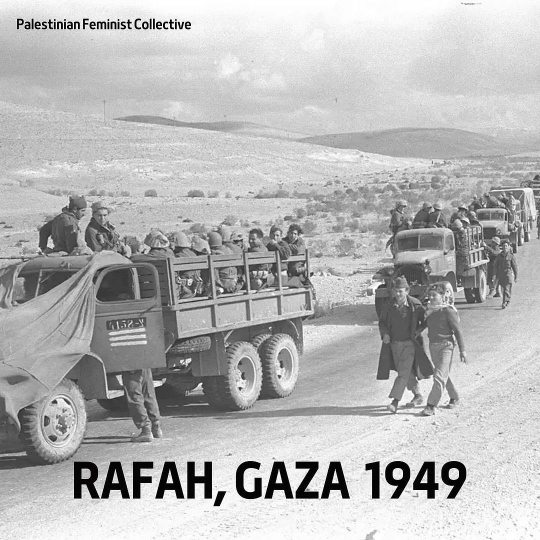
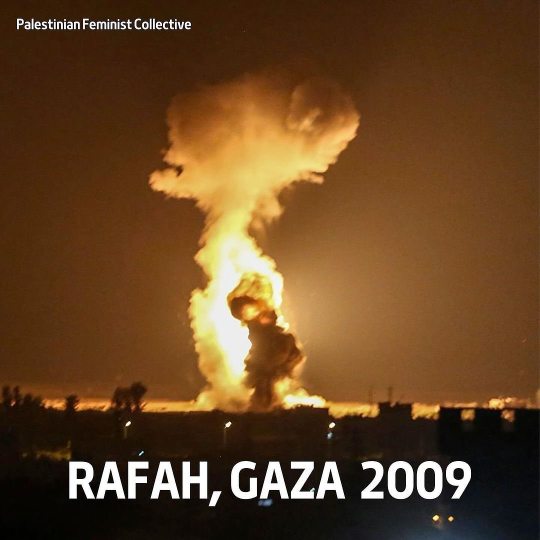

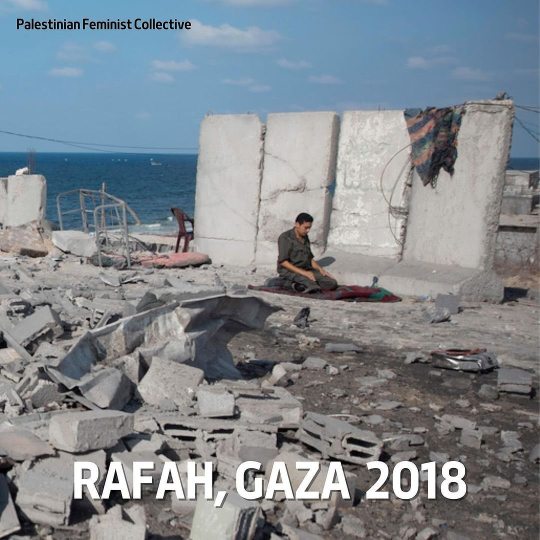

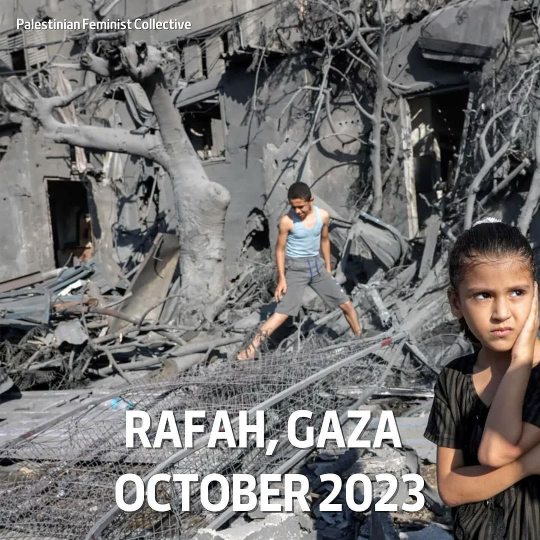
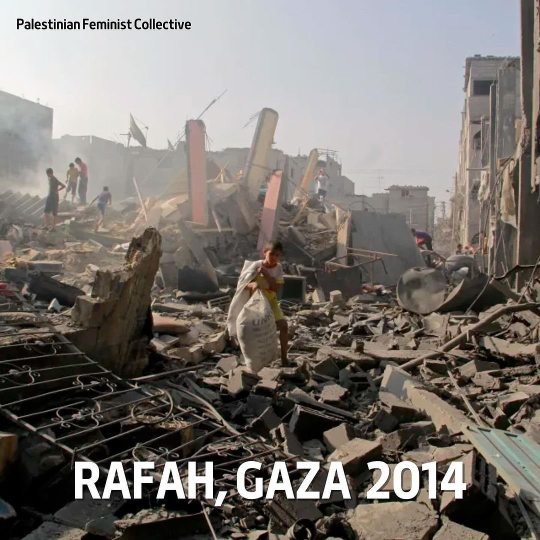
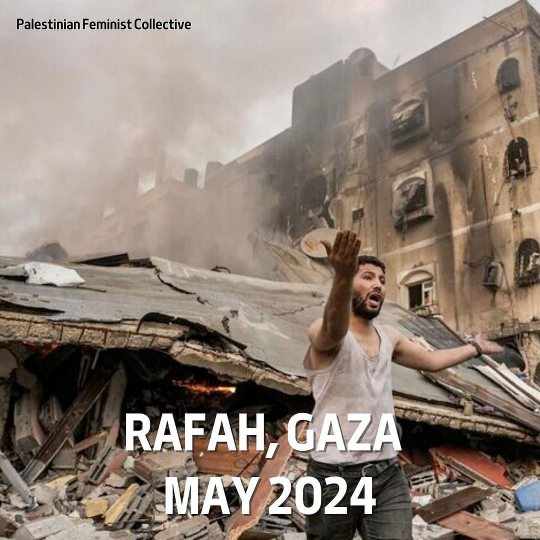

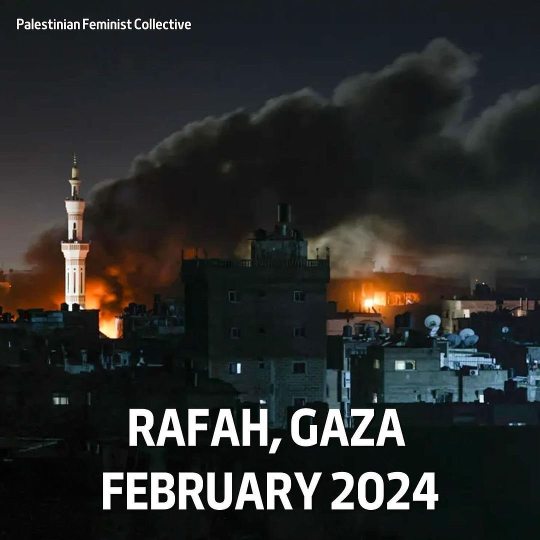
#then and now#before and after#iof war crimes#iof terrorism#mass destruction#40000 dead and counting#let Palestine live#apartheid#save palestine#israel is an apartheid state#ethnic cleansing#free palestine 🇵🇸#genocide#israel lies while Palestine dies#propaganda kills#this was never about hamas#blood lust#war monger#never again means never again for anyone#never again is NOW!#stolen land#generational trauma#stolen lives#stolen childhood#gaza is a graveyard for children#all eyes on rafah#save rafah#rafah#stand up for palestine#protest for palestine
109 notes
·
View notes
Text
ranting to my mom abt art that means nothing bc why even bother making art at that point and she's calling me a purist ???
#like the guy who shoved nighthawks into the generative blender and destroyed any meaning from it just for it to be slop#or the other guy who prides himself on making apolitical art while stealing directly from keith haring and its not even good bc its so busy#like visually not good. i think its garbage because he's taking from a gay artist who died to aids#haring spent his life making his art more accessible and raising awareness for hiv/aids and spreading anti-apartheid messages#ik as a fanartist sometimes its a sort of weird thing but liking some guy is still a meaning#more meaning than the art that gets pumped out just to turn a profit btw#you're sharing a piece of you
1 note
·
View note
Text
Pistorius: sentenza degna dell'apartheid
Pistorius ha ucciso la sua fidanzata, Reeva Steenkamp. Inizialmente condannato per omicidio colposo a cinque anni (da scontarsi in casa dello zio con braccialetto elettronico), confermati in secondo appello, al terzo si è beccato 15 anni (in carcere), un minimo di 13, poi avrebbe potuto chiedere la libertà sulla parola. Ci ha provato a marzo di quest’anno e già circolavano voci secondo cui…

View On WordPress
#Apartheid#Brand#Controllo#Corpi#Cultura Patriarcale#Diritti#Femminicidio#Sessismo#Violenza di Genere
0 notes
Text
The year is 1998. While antiviral drugs to treat HIV had been approved a decade earlier, only five out of 33 million people who carried the virus were receiving the life-saving treatment. Nowhere was the situation worse than in South Africa. The country had the highest global prevalence of the disease with nearly one in five people infected and 200,000 children orphaned.
Treatment options were limited. That year, the Minister of Health released a report outlining the deficiencies in the country’s health care system. The principal finding was that most South Africans could not afford antivirals. The average monthly income at the time hovered around $220 a month, which was nowhere near the $1,000 per month the pharma companies were charging for their wares. Faced with a virus that was decimating his population, Nelson Mandela made a choice that landed him in court for the first time since his arrest several decades earlier for resisting apartheid.
His government broke the patent regime for the antivirals that was chiefly responsible for killing his people—allowing parallel imports in which generics companies manufacture the drug without the patent-holding pharma company’s consent. He was instantly sued by 40 pharmaceutical companies. Bill Clinton’s administration cowered to pressure from the pharma lobby and placed South Africa on a watchlist, subjecting the nation to possible trade sanctions. It ended up being an enormous PR disaster for the obstreperous pharmaceutical firms. After three years of mounting pressure from AIDS activists, the pharma companies finally dropped their case.
While this story has a happy ending, Mandela’s battle against Big Pharma was only a small part of an ongoing war to provide equitable access to HIV medication. In the decades since his court case, taxpayer-funded research has contributed enormously to the development of new HIV treatments. New drugs can now allow people living with HIV to enjoy normal life spans, and completely reduce the risk of new transmissions. Used widely, medications should allow the complete eradication of HIV from the planet. The only obstacle the world is now facing is the same one Mandela stared down: corporate greed which prioritizes profits over human life.
@startorrent02
357 notes
·
View notes
Photo
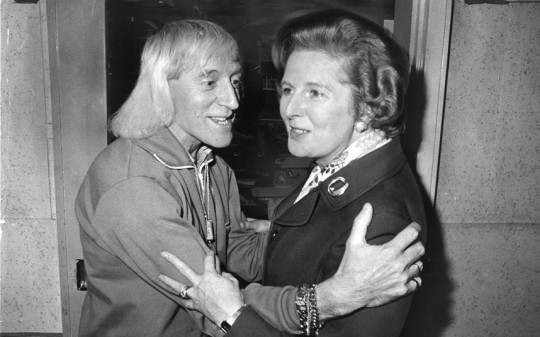
On this day, 8 April 2013, former Conservative prime minister Margaret Thatcher died. Street parties broke out across the UK, particularly in working class areas and in former mining communities which were ravaged by her policies. Her legacy is best remembered for her destruction of the British workers' movement, after the defeat of the miners' strike of 1984-85. This enabled the drastic increase of economic inequality and unemployment in the 1980s. Her government also slashed social housing, helping to create the situation today where it is unavailable for most people, and private property prices are mostly unaffordable for the young. Thatcher also complained that children were "being cheated of a sound start in life" by being taught that "they have an inalienable right to be gay", so she introduced the vicious section 28 law prohibiting teaching of homosexuality as acceptable. Abroad, Thatcher was a powerful advocate for racism, advising the Australian foreign minister to beware of Asians, else his country would "end up like Fiji, where the Indian migrants have taken over". She hosted apartheid South Africa's head of state, while denouncing the African National Congress as a "typical terrorist organisation". Chilean dictator general Augusto Pinochet, responsible for the rape, murder and torture of tens of thousands of people, was a close personal friend. Back in Britain, she protected numerous politicians accused of paedophilia including Sir Peter Hayman, and MPs Peter Morrison and Cyril Smith. She also lobbied for her friend, serial child abuser Jimmy Savile, to be knighted despite being warned about his behaviour. Margaret Thatcher was eventually forced to step down after the defeat of her hated poll tax by a mass non-payment campaign. Pictured: Jimmy Savile welcoming Thatcher to hell, reportedly. Learn more about the great miners' strike of 1984-5 in our podcast series: https://workingclasshistory.com/tag/1984-5-miners-strike/ https://www.facebook.com/photo.php?fbid=605239344982618&set=a.602588028581083&type=3
1K notes
·
View notes
Note
African/African-American/Black
Do The Right Thing (1989) On the hottest day of the year on a street in the Bedford-Stuyvesant section of Brooklyn, everyone's hate and bigotry smolders and builds until it explodes into violence.
Goodbye Solo (2008) This film is touching and humorous. It is the story of an unlikely friendship between a struggling but happy cab driver from Senegal, and a tormented southern man with secrets.
Lincoln (2012) As the Civil War continues to rage, President struggles with continued fighting on the battlefield during the civil war but he also fights with many inside his own cabinet with his decision to emancipate the slaves.
Malcom X (1992) Biographical epic of the controversial and influential Black Nationalist leader, from his early life and career as a small-time gangster to his ministry as a member of the Nation of Islam.
Straight Outta Compton (2015) The group NWA emerges from the mean streets of Compton in Los Angeles, California, in the mid-1980s and revolutionizes Hip Hop culture with their music and tales about life in the hood.
The Color of Friendship (2000) Mahree Bok is a white South African teenager and a product of the Apartheid system raised to view dark-skinned people as second-class citizens. Piper Dellums is the daughter of an African-American U.S. Congressman living in Washington D.C. When Mahree is chosen to spend her time as an exchange student at the Dellums's house, she is shocked on her arrival to discover that the Dellums are black, and the Dellums are just as surprised when they realize that Mahree is a white South African.
The Color Purple (1985) Based on Alice Walker's Pulitzer Prize-winning novel, The Color Purple is a richly-textured, powerful film set in America's rural south. It is a brilliant drama about a black woman's struggles to take control of her life in a small Southern town in the early 20th century.
The Help (2011) This academy award winning movie takes place during the civil rights movements of the 1960’s, when an aspiring writer decides to write a book about the African-American maids' point of view on the white families they work for and the hardships they experience on a daily basis.
——————————————
Cambodian/Chinese/Vietnamese
Eat Drink Man Woman (1994) A senior chef lives with his three grown daughters; the middle one finds her future plans affected by unexpected events and the life changes of the other household members.
Holly (2006) In Cambodia, Holly, a 12-year-old Vietnamese girl, encounters Patrick, an American stolen artifacts dealer. The story follows their strong connection and her unrelenting efforts to escape her fate.
Last Train Home (2009) A couple embarks on a journey home for Chinese new year along with 130 million other migrant workers, to reunite with their children and struggle for a future. Their unseen story plays out as China soars towards being a world superpower.
Lost in Paradise (2011) Khoi, naive twenty-year-old travels to Ho Chi Minh City from the countryside to begin a new life. It's his first time in the big city and he's looking for a place to live.
Raise the Red Lantern (1991) A young woman becomes the fourth wife of a wealthy lord and must learn to live with the strict rules and tensions within the household.
Sentenced Home (2007) This documentary follows three Cambodian-American men, brought to the U.S. as children by their refugee families. They were raised in the grim public housing of Seattle, among gangs and other realities of that life. Bad choices as teens altered their lives forever, when immigration laws after 9/11 provided no second changes for such children. Though they were raised in the U.S., speak to one another in English, even think in English, each is sentenced to return to Cambodia - separated from family here, possibly forever.
The Joy Luck Club (1993) The story of four Chinese women who immigrated to the U.S. and their first-generation daughters. When one of the women dies, her daughter plays Mahjong with the older women and begins to really learn what her mother endured in China and of her sisters who were left behind. Daughter from Danang (2002) Separated at the end of the Vietnam war, an "Americanized" woman and her Vietnamese mother are reunited after 22 years.
The Last Emperor (1987) The story of the final Emperor of China.
The Quiet American (2002) An older British reporter vies with a young U.S. doctor for the affections of a beautiful Vietnamese woman.
The Vertical Ray of the Sun (2000) The plot centres around three sisters, two of whom are happily married (or so it appears).
Three Seasons (1999) An American in Ho Chi Minh City looks for a daughter he fathered during the war. He meets Woody, a child who's a street vendor, and when Woody's case of wares disappears, he thinks the soldier took it. Woody hunts for him.
——————————————
South Asian/Indian
Bhaji on the Beach (1998) Hashida, an 18-year old Asian woman, lives with her family in Birmingham. Her father wants her to become a doctor and next month her medical school is going to start. Secretly, she has a black boyfriend – which is an absolute faux pas in some Asian cultures – and has now discovered that she is pregnant. She joins a small South Asian women's group on a trip to Blackpool, a trip that holds life-changing experiences for all.
Bend It Like Beckham (2002) Teen-aged Londoner Jesminder Bhamra chases her dream of being a professional soccer player while dealing with the objections of her traditional Sikh family.
Gandhi (1982) A biography of Mohandas K. Gandhi, the lawyer who became the famed leader of the Indian revolts against the British rule through his philosophy of non-violent protest.
Slum Dog Millionaire (2008) A teen in Mumbai, India who grew up in the slums, becomes a contestant on the Indian version of "Who Wants To Be A Millionaire?" When he is suspected of cheating, he is arrested. During his police interrogation, events from his life history are shown which explain why he knows the answers.
The Namesake (2006) A tale of a first-generation son of traditional, Indian immigrant parents. As he tries to make a place for himself, not always able to straddle two worlds gracefully, he is surprised by what he learns about his family and himself.
——————————————
Disease/Mental Illness/Disability
My Left Foot: The Story of Christy Brown (1989) Christy Brown, born with cerebral palsy, learns to paint and write with his only controllable limb - his left foot.
The Theory of Everything (2014) A look at the relationship between the famous physicist Stephen Hawking and his wife.
Ray (2004) The story of the life and career of the legendary rhythm and blues musician Ray Charles, from his humble beginnings in the South, where he went blind at age seven, to his meteoric rise to stardom during the 1950s and 1960s.
Silver Linings Playbook (2012) After a stint in a mental institution, former teacher Pat Solitano moves back in with his parents and tries to reconcile with his ex-wife. Things get more challenging when Pat meets Tiffany, a mysterious girl with problems of her own.
Still Alice (2014) A linguistics professor and her family find their bonds tested when she is diagnosed with Alzheimer's Disease.
——————————————
LGBTQ+
A Single Man (2009) The story of an English professor, who one year after the sudden death of his boyfriend, is unable to cope with his typical days in 1960s Los Angeles. It is a powerful story of his grief and pain for the loss of someone he truly deeply loved.
Boys Don’t Cry(1999) This film is about the true life story of Brandon Teena, a young woman who is going through a sexual identity crisis. She cuts her hair and dresses like a man to see if she can pass as one. She lived life in a male identity until it was discovered he was born biologically female.
Brokeback Mountain (2005) This film tells the story of a forbidden and secretive relationship between two same-sex cowboys and their lives over the years.
Milk (2008) This film tells the story of American gay activist, Harvey Milk, and his struggles as he fights for gay rights and becomes California's first openly gay elected official.
Philadelphia (1993) In this movie, a lawyer, working for a conservative law firm, is diagnosed with AIDS. His employer fires him because of his condition. He tries to find someone to take his case but all refuse except one willing small time lawyer who advocates for a wrongful dismissal suit in spite of his own fears and homophobia.
The Danish Girl (2015) A fictitious love story loosely inspired by the lives of Danish artists Lili Elbe and Gerda Wegener. Lili and Gerda's marriage and work evolve as they navigate Lili's groundbreaking journey as a transgender pioneer.
Transamerica (2005) A pre-operative male-to-female transgender takes an unexpected journey when she learns that she fathered a son, now a teenage runaway hustling on the streets of New York.
——————————————
Hispanic/Latino(a)/Mexican
A Day Without a Mexican (2004) One-third of the population of California is Latinos, Hispanics, Mexicans. How would it change life for the state's other residents if this portion of the populous suddenly vanished? The film is a "mockumentary" designed to show the valuable contributions made every day by Latinos.
Babel (2006) Tragedy strikes a married couple on vacation in the Moroccan desert, touching off an interlocking story involving four different families.
El Norte (1983) The Guatemalan army discovers Mayan Indian peasants who have begun to organize, hoping to rise above their label of "brazos fuertes" or "strong arms" (manual laborers). The army massacres their families and destroys their village to give the new recruits no choice but to follow and obey. However, two teenage siblings survive and are determined to escape to the U.S. or El Norte. They make their way to L.A. - uneducated, illegal immigrants, alone.
Mi Familia (My Family) (1995) This epic film traces over three generations an immigrant family's trials, tribulations, tragedies, and triumphs. Jose and Maria, the first generation, come to Los Angeles, meet, marry, face deportation all in the 1930s. They establish their family in East L.A., and their children Chucho, Paco, Memo, Irene, Toni, and Jimmy deal with youth culture and the L.A. police in the 1950s. As the second generation become adults in the 1960s, the focus shifts to Jimmy, his marriage to Isabel (a Salvadorian refugee), their son, and Jimmy's journey to becoming a responsible parent.
Sin Nombre (2009) A Honduran young girl and a Mexican gangster are united in a journey across the American border.
Under the Same Moon (2007) Heartwarming story about a mother who leaves Mexico to make a home for herself and her son (Adrian Alonso). When the boy's grandmother dies, leaving him alone, he sets off on his own to find his mother.
——————————————
Immigrants/Undocumented
Crossing Arizona (2006) With Americans on all sides of the issue up in arms and Congress in a policy battle over how to move forward, Crossing Arizona tells the story of how we got to where we are today. Heightened security in California and Texas has pushed illegal border-crossers into the Arizona desert in unprecedented numbers (estimated 4,500 a day). Most are Mexican men in search of work, but increasingly the border-crossers are women and children wanting to join their husbands and fathers. This influx of migrants crossing through Arizona and the attendant rising death toll has elicited complicated feelings about human rights, culture, class, labor, and national security.
Dancer in the Dark (2000) An east European girl goes to America with her young son, expecting it to be like a Hollywood film.
El Norte (1983) The Guatemalan army discovers Mayan Indian peasants who have begun to organize, hoping to rise above their label of "brazos fuertes" or "strong arms" (manual laborers). The army massacres their families and destroys their village to give the new recruits no choice but to follow and obey. However, two teenage siblings survive and are determined to escape to the U.S. or El Norte. They make their way to L.A. - uneducated, illegal immigrants, alone.
In America (2002) A family of Irish immigrants adjusts to life on the mean streets of Hell's Kitchen while also grieving the death of a child.
The Terminal (2004) When an Eastern European immigrant comes to American to fulfill a promise to his father he finds himself stranded inside JFK airport, making it his temporary residence when he cannot enter the USA nor return home.
The Visitor (2007) A lonely economics professor in Connecticut life is changed forever - and for the better - when he finds a couple of illegals, who happen to be living in his New York apartment.
Green Card (1990) A French man wanting to stay in the US enters into a “short-term” marriage to an American woman so he can get his green card. Complications result when he gets caught lying.
——————————————
Indigenous
Avatar (2009) A paraplegic marine dispatched to the moon Pandora on a unique mission becomes torn between following his orders and protecting the world he feels is his home.
Bury My Heart at Wounded Knee (2007) A chronicle of how American Indians were displaced as the U.S. expanded west. Based on the book by Dee Brown.
Once Were Warriors (1994) A family descended from Maori warriors is bedeviled by a violent father and the societal problems of being treated as outcasts.
Rabbit-Proof Fence (2002) In 1931 Australia, government policy includes taking half-caste children from their Aboriginal mothers and sending them a thousand miles away "to save them from themselves." Molly, Daisy, and Grace (two sisters and a cousin who are 14, 10, and 8) arrive at their “school” and promptly escape, under Molly's lead. For days they walk north, following a fence that keeps rabbits from settlements, eluding a native tracker and the regional constabulary. Their pursuers take orders from the government's "chief protector of Aborigines," A.O. Neville, blinded by Anglo-Christian certainty, evolutionary worldview and conventional wisdom.
Smoke Signals (1998) Young Indian man Thomas is a nerd in his reservation, wearing oversize glasses and telling everyone stories no-one wants to hear. His parents died in a fire in 1976, and Thomas was saved by Arnold. Arnold soon left his family (and his tough son Victor), and Victor hasn't seen his father for 10 years. When Victor hears Arnold has died, Thomas offers him funding for the trip to get Arnold's remains, but only if Thomas will also go with him. Thomas and Victor hit the road.
The Spirit of Crazy Horse (1990) One hundred years after the massacre at Wounded Knee, Milo Yellow Hair recounts the story of his people-from the lost battles for their land against the invading whites-to the bitter internal divisions and radicalization of the 1970's-to the present-day revival of Sioux cultural pride, which has become a unifying force as the Sioux try to define themselves and their future.
Whale Rider (2002) On the east coast of New Zealand, the Whangara people believe their History dates back a thousand years to a single ancestor, Paikea, who escaped death when his canoe capsized by riding to shore on the back of a whale. Whangara chiefs have been considered Paikea's direct descendants. Pai, an 11-year-old girl in a patriarchal New Zealand culture, believes she is destined to be the new chief. But her grandfather Koro is bound by tradition to pick a male leader. Pai must fight a thousand years of tradition to fulfill her destiny.
——————————————
Middle Eastern
Baran (2001) In a building site in present-day Tehran, Lateef, a 17-year-old Turkish worker is irresistibly drawn to Rahmat, a young Afghan worker. The revelation of Rahmat's secret changes both their lives.
Incendies (2010) Twins journey to the Middle East to discover their family history, and fulfill their mother's last wishes.
Schindler's List (1993) In German-occupied Poland during World War II, Oskar Schindler gradually becomes concerned for his Jewish workforce after witnessing their persecution by the Nazi Germans.
The Band’s Visit (2007) A band comprised of members of the Egyptian police force head to Israel to play at the inaugural ceremony of an Arab arts center, only to find themselves lost in the wrong town.
Turtles Can Fly (2004) Near the Iraqi-Turkish border on the eve of an American invasion, refugee children like 13-year-old Kak (Ebrahim), gauge and await their fate.
Wadjda (2012) An enterprising Saudi girl signs on for her school's Koran recitation competition as a way to raise the remaining funds she needs in order to buy the green bicycle that has captured her interest.
——————————————
Pacific Islander/Polynesian
Balangiga: The Howling Wilderness (2017) 1901, Balangiga. Eight-year-old Kulas flees town with his grandfather and their carabao to escape General Smith's Kill and Burn order. He finds a toddler amid a sea of corpses and together, the two boys struggle to survive the American occupation.
Moana (2016) In Ancient Polynesia, when a terrible curse incurred by the Demigod Maui reaches an impetuous Chieftain's daughter's island, she answers the Ocean's call to seek out the Demigod to set things right.
Once Were Warriors (1994) A family descended from Maori warriors is bedeviled by a violent father and the societal problems of being treated as outcasts.
Princess Kaiulani (2009) The story of a Hawaiian princess' attempts to maintain the independence of the island against the threat of American colonization.
Whale Rider (2002) On the east coast of New Zealand, the Whangara people believe their History dates back a thousand years to a single ancestor, Paikea, who escaped death when his canoe capsized by riding to shore on the back of a whale. Whangara chiefs have been considered Paikea's direct descendants. Pai, an 11-year-old girl in a patriarchal New Zealand culture, believes she is destined to be the new chief. But her grandfather Koro is bound by tradition to pick a male leader. Pai must fight a thousand years of tradition to fulfill her destiny.
——————————————
Women
Āfsāīd = Offside (2006) Struggle of Women in a country that excludes them from entering the stadiums.
The Help (2011) This academy award winning movie takes place during the civil rights movements of the 1960’s when an aspiring writer decides to write a book about the African-American maids' point of view on the white families they work for and the hardships they experience on a daily basis.
Suffragette (2015) The foot soldiers of the early feminist movement, women who were forced underground to pursue a dangerous game of cat and mouse with an increasingly brutal State.
Water (2005) The film examines the plight of a group of widows forced into poverty at a temple in the holy city of Varanasi. It focuses on a relationship between one of the widows, who wants to escape the social restrictions imposed on widows, and a man who is from the highest caste and a follower of Mahatma Gandhi.
Whale Rider (2002) On the east coast of New Zealand, the Whangara people believe their History dates back a thousand years to a single ancestor, Paikea, who escaped death when his canoe capsized by riding to shore on the back of a whale. Whangara chiefs have been considered Paikea's direct descendants. Pai, an 11-year-old girl in a patriarchal New Zealand culture, believes she is destined to be the new chief. But her grandfather Koro is bound by tradition to pick a male leader. Pai must fight a thousand years of tradition to fulfill her destiny.
Ooh amazing, thank you for this! ❤️
I've watched Slumdog Millionaire, Brokeback Mountain, and Schindler's List. And read a Penguin Classics abridged version of Rabbit-Proof Fence as part of my English learning back in my teenage years. Some of the others I'm familiar with tho have yet to watch; and others are completely new to me
35 notes
·
View notes
Text
My favorite thing (/s) about Pro Israel folks and the people focusing so much on the recent Hamas attack is how great they're at spreading blatant lies.
You see them post something about what Hamas or Palestinians did to Israelis and through fact checking it's revealed it's the other way round 😂
People linking wikipedia, bbc....and other Western media links.....as their "sources"
Like wow, I didn't know you guys were this dense. Even some of the people I respected on here seem to be affected immensely by propaganda. US and other Western countries have not only supported but also funded Israel's apartheid regime and even now it's doing the same.
I was brainwashed by radfems too with their "rape is never okay". Many radfems sure do know how to manipulate you using your class consciousness as women to be blind to other oppressive systems or distort facts.
There's no proof any of the kidnapped women being raped. And yet most radfems are speaking about nothing but that. They aren't even speaking about the constant suffering and rape of Palestinian women by IDF (including many Israeli women as perpetrators).
I remember that I started reading more about this issue in 2021 when some IDF attack killed many Palestinians in a mosque. Don't remember the details well. It's been a while. And I wasn't on Tumblr then but I do remember that mainstream media did not give a shit about it. And now suddenly the anti terrorism sentiment of Pro Israel countries and even people who supposedly support Palestinians has chosen to rise again.
Very convenient timing for you.
One thing I will tell you is to remember that the conditions colonizers force on the colonized make it hard for the colonized to rely on any ideal form of resistance. Hamas is not the only group for Palestinian resistance. There are others but this is the large one today. Before there used to be better secular ones but they were all squashed cause Israel created Hamas. And there have been peaceful protests and everything. Israel killed the people who protested and the soldiers laughed when they were done. Where was this global outrage then?
Sm of relying for information on media leaning towards Israel and yet so many of you are missing this fact out. This is what colonizers always do. Read history of as many colonized countries you can. And you will find out that colonizers, while they were generally against opposition of the colonized's liberation, funded the anti-leftist, anti-communist/nationalist or religious extremists or/and the ruling class of the colonized society in their national liberation movement.
They help in squashing other more dangerous (from a colonizer's pov) national liberation movements. Nothing better than reducing your enemies to extremists. The British did that in my country too. Talked a lot about how horrible our society is but politically and economically supported the ruling class that created and perpetrated those issues. And some European women and children died in some isolated protests or riots as well during colonial era. But obviously it was nothing compared to the number of people that died on my side than the colonizers'.
So don't be surprised when people see Hamas as a necessary means or don't entirely oppose as part of Palestinian liberation. No sane person actually "supports" Hamas. But it is what is. It's Israel's own creation. Palestinians are left with no options. You're linking ngos supported or created by Israelis and other dumb shit as "an alternative". But colonization can't be won over through ngos lmao. Heck, ngos can't even actually make a lot of changes in human rights in areas that aren't war torn cause of corruption. You expect it to work for Gaza? Please
If Israel or anyone wants Hamas to stop then they should simply give up their brutal settler colonialism and not oppose any leftist org or movement formed by the Palestinians even after ending apartheid and everything. There's no other alternative except this. And if you haven't learnt your lesson yet, then don't support any "intervention" by USA or some other genocidal country.
Ik for a fact you people wouldn't support my country's decolonization if you lived back then. Cause the national liberation movement in my country was dominated by religious, anti communist and ruling class as well. And I, as a female bisexual from an oppressed caste will never ideologically support the people who led national liberation in my country. And yet ik they were necessary in the path to independence cause the British let only them have any power in the country. The two opinions can co exist.
You guys are so focused on opposing the ideology of Hamas and how they're bad for Palestinians themselves, you are forgetting Hamas is legally recognized as terrorists by many powerful Western/west-allied countries around the world and are actively funding and supporting Israel's genocide against Palestinians.
It's funny how the same people unconditionally support Ukraine in the war, including Ukraine itself. Even though US, UK, France and other countries are supporting Nazis in the Ukrainian military to fight against Russia.....
And I am not "supporting" Hamas or killing of cilivians....but I am just analyzing the history and politics behind this issue that is hugely ignored.
Radfems are reblogging that dumb addition by female-malice about an unbacked conspiracy theory about Iran,completely removing any accountability or responsibility of the states of "Israel". There's a conspiracy theory that Israel planned this attack as well. And yet I haven't see any pro Palestine leftist spread that theory presenting it as a fact rather than a speculation. Genuinely you guys are just racist and don't want to hold Israel actually accountable apart from a little side remark.
Everytime I see such false claims, misinformation, unproven conspiracy theories I check what sources the person has to provide or which sources are reporting that. And it's some damn Western news outlet every time. Every fricking time.
Ignoring what Israel PM is doing to the civilians in Gaza right now.....in favor of getting into online discourse about "so it's okay to kill/rape innocent people?" Plain evil
You do realize most of the world is revolting against that now? That powerful international forces are incentivizing this attack to commit further atrocities against civilians in Gaza? It's not a time to debate whether the attack was okay or not, it's time to speak about how the Israeli PM and rest of the world is choosing to respond to it.
I was going to write a respectfully worded post about this. But I won't. Cause I am not some extraordinary independent journalist or anything. I am not even in majoring in any social science or history subject. But it wasn't that hard for me to get around the misinformation from msm. And I am from a country that is and has been pro Israel and very great at spreading propaganda through msm.
I saw one radfem say in response to question of Palestinian women's suffering that "how are we supposed to know what's happening to them? I am not seeing any posts on my dash about it". Good to know your dumbass relies on Tumblr posts for misinformation.
I have been incredibly busy so not made any posts about this issue. But I think that's what I am going to keep reblogging and posting about for a while now. So don't hesitate to filter tags or click the unfollow button if this irritated you. Cause there's more to come.
#palestine#israel#very disappointed at one mutual who reblogged a post in support of Israeli women but just liked instead of reblogging the post I reblogged#for Palestinian women#this isn't a “war”#for a human rights crisis to be called as a “war” there must be two strong armies fighting against each other and clearly it's not the case#the more I read about radfems' views on issues that involve some other intersectional issues the more I despise them#not a surprise tho after all these are the women who think “combatting misogyny is harder than combatting racism homophobia or ableism”
98 notes
·
View notes
Text
Emma Graham-Harrison at The Guardian:
Israel’s defence minister has ordered the military to prepare plans to allow Palestinians “who wish to leave” Gaza to exit, after Donald Trump suggested the US take over the territory and resettle its residents in other countries. A Hamas official attacked the proposal as a “declaration of intent to occupy” Gaza, as Egypt, which Trump named as a possible destination for Palestinians, launched an intense behind-the-scenes diplomatic campaign to block it going further. Cairo’s envoys warned the US and its allies that it would resist any attempts to move Palestinians across the border, and said the plan threatened its decades-old peace deal with Israel, a template for later regional normalisation deals. Inside Israel, mainstream political reactions to Trump’s comments have ranged only on a spectrum of approval, from delighted celebration among the far right, to the opposition leader, Benny Gantz, saying Israel had “nothing to lose” from the proposal, and Yair Lapid describing the press conference as “good for the state of Israel”.
Their positions reflect popular opinion inside Israel. Eight out of 10 Jewish Israelis support Trump’s call for the “relocation” of Palestinians from Gaza, although only half think it is a practical proposal, according to a poll by the Jewish People Policy Institute. The only strong opposition to the plan came from a handful of politicians on the far left of Israel’s spectrum; some relatives of hostages still held in Gaza, who said they feared the project could derail the ceasefire deal; and some activists and journalists who echoed international warnings against ethnic cleansing. ��If there were a true opposition in Israel, one with a conscience, a worldview and even some sort of plan for the future, it would’ve raised a loud warning: don’t drink Trump’s potion,” Gur Megiddo wrote in a column for Haaretz. “The idea of clearing an area of a specific ethnic group, even if it’s a bitter and ruthless enemy, is a concept that Jews – especially the sons of Holocaust survivors like Lapid and Gantz – must never support, no matter the circumstances.” The announcement by the defence minister, Israel Katz, of orders to the military to prepare air, sea and land options for Palestinians to leave Gaza appeared more political than practical, even if any wanted to go, because no countries have offered to host them. “The people of Gaza should have the right to freedom of movement and migration,” Katz said in a statement on X, although it was clear the journeys would only be in one direction. Before the war, Israel’s tight controls on movement in and out of Gaza made it difficult for Palestinians to travel internationally. Restrictions got even tighter after the conflict began; and after Israeli troops began operating near the Rafah crossing last May it was impossible for Palestinians to leave.
An agreement to allow medical evacuations from Gaza was part of the ceasefire deal, and the first group of sick children left on Saturday, although two died before they could be taken out and others had become too sick to move. Trump’s plan to turn Gaza into a “Riviera of the Middle East” caused international outrage, including a warning from the UN secretary general, António Guterres, that “it is essential to avoid any form of ethnic cleansing”. Forced or coerced displacement is a crime against humanity, illegal under the Geneva conventions, to which Israel and the US are signatories.
Israel Apartheid State Defence Minister Israel Katz tells the IOF to prepare ethnic cleansing plans for Palestinians to leave Gaza.
#Gaza#Gaza Genocide#Israel Apartheid State#Israel Occupation Forces#Occupation of Palestine#Ethnic Cleansing#Israel Katz#Benny Gantz#Forced Displacement
13 notes
·
View notes
Note
Do you feel as though war and genocide soldiers, like nazis or the idf or rsf, etc are all able to be redeemed? Is separating them from society more harmful than allowing them to be in it, alongside the population of people they wish to harm? Can a person that willingly and gleefully murders a child be changed? Is it worth the resources to try, as opposed to using resources for their victims? If therapy is not meant to deconstruct and dismantle white supremacy, can it even tackle their issues effectively? I am asking all /gen btw, I am personally terrified of the fact the once they finish duty, idf soldiers will be back with the general population.
Thanks for the question, anon. There's no straight or short answer, but I invite you to consider the following:
One of the all-time greatest challenges in warfare is soldiers who won't fight - now called the "ratio of fire." Military strategists after WWII studies were told to expect 75-85% of their soldiers to either never fire their weapons or intentionally miss, even when their own lives are in danger. The most effective way to "improve" the ratio is aggressively brainwashing soldiers to believe their enemy is evil and wants to torture, rape, and murder their families. We hear that rhetoric from the IOF all the time.
75 countries mandate military service, including Israel. It's not just to maintain a large army - which doesn't make economic sense when not at war. Young people tend to be progressive. Military service allows governments to impose on young people the nationalist brainwashing they perfected to improve ratio of fire. University professors actually struggle to teach military students in the US because they are so brainwashed to not question and not think independently, which is required in higher education.
In countries like the US that don't mandate military service, we find ways to force it on young folks, especially low-income and people of color. One of the biggest arguments against free college is that no one would join the military. That's also an argument against universal healthcare. Folks go into the military just to get access to basic dental care. Recruiters are allowed to lie to teenagers to get them to enlist. There was a proposal to reduce the US enlistment age to 16 because recruiters were struggling to find young Black men without adult criminal records.
The PTSD diagnosis developed during treatment of US Vietnam veterans. Often, it was not the things that happened to them that haunted them most. Rather, it was the horrific war crimes they themselves committed that made them ill. These were mostly drafted men who lacked the privilege to dodge the draft. They didn't want to be there. They were brainwashed, propagandized, and put in near-constant life-threatening danger. Every so often, one of them snapped and massacred a village of helpless people. Doing horrible harm to others, doctors found, even of your own volition in that moment, caused severe psychological trauma.
We very much do know what happened to Nazi soldiers after WWII. Retributive justice saw 8,000 starve to death in US POW camps. Between 1.5 and 3 million were imprisoned in Russian gulags where they were used as slaves until 1956. About a third died. Those that survived were released back to Germany where they lived traumatized but generally peacefully.
We very much have seen successful large-scale restorative justice work done between oppressed people and their former oppressors in the form of South Africa's Truth and Reconciliation Commission. It was a groundbreaking effort, imperfect, and its efficacy is a matter of some debate, but it did produce a functioning, non-apartheid nation, and it did not kill millions in concentration camps.
I try to look at most issues from a systemic standpoint. War, in my mind, is a crime committed by the wealthy and powerful. Its first victims are soldiers, and its next victims are the people those soldiers hurt. Your average soldier has no personal stake in a war, certainly not the way that politicians and oligarchs do. They are indoctrinated and brainwashed until they believe they do.
Many soldiers do work to deprogram themselves after military service. Many don't even know it's something that needs to be done. Undoing brainwashing is difficult but possible, given the right resources and environments. You also can't undo brainwashing while it's still actively occurring, and the brainwashing won't stop until the systems profiting off it are dismantled.
25 notes
·
View notes
Text
25 Novembre: Responsabilità e Coraggio nella Lotta contro la Violenza sulle Donne
Centro Antiviolenza me.dea: Iniziative e Impegno per un Futuro Senza Violenza
Centro Antiviolenza me.dea: Iniziative e Impegno per un Futuro Senza Violenza Alla vigilia del 25 novembre, Giornata Internazionale per l’Eliminazione della Violenza contro le Donne, il Centro Antiviolenza me.dea di Alessandria ribadisce con forza il suo impegno nella lotta contro la violenza di genere. Con oltre 15 anni di attività, me.dea è un riferimento per il territorio, offrendo supporto a…
#25 novembre#Alessandria#Alessandria eventi.#Alessandria today#attività culturali#cambiamento sociale#Centro Antiviolenza me.dea#Confindustria Alessandria#cultura di genere#empowerment femminile#flash mob scarpe rosse#Fondazione Time2#Fondazione Viva#Giornata internazionale contro la violenza#Google News#iniziative locali#italianewsmedia.com#me.dea Alessandria#ONU e apartheid di genere#Osama film#Pier Carlo Lava#progetti sociali#PROTOCOLLO D’INTESA#Resistenza è donna#responsabilità collettiva#Sarah Sclauzero#Sarah Sclauzero riconoscimenti#Sarah Sclauzero Ufficiale al Merito#scarpe rosse#Sensibilizzazione
0 notes
Text
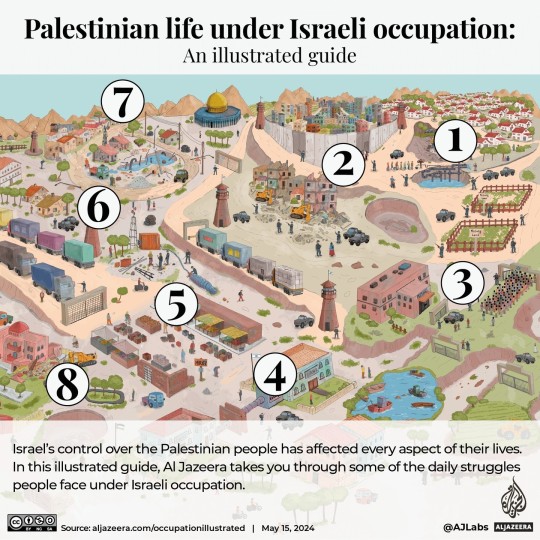
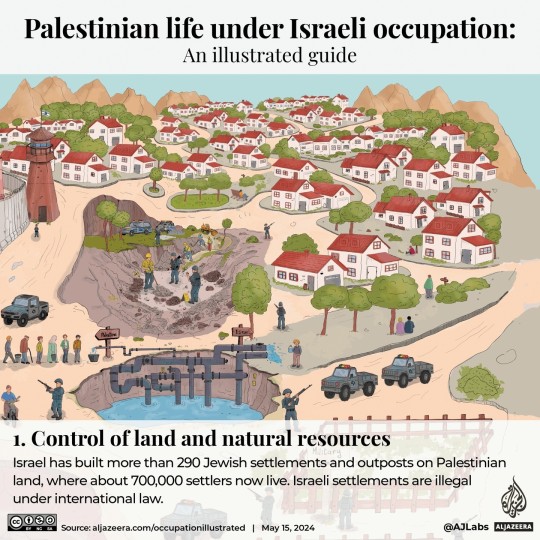
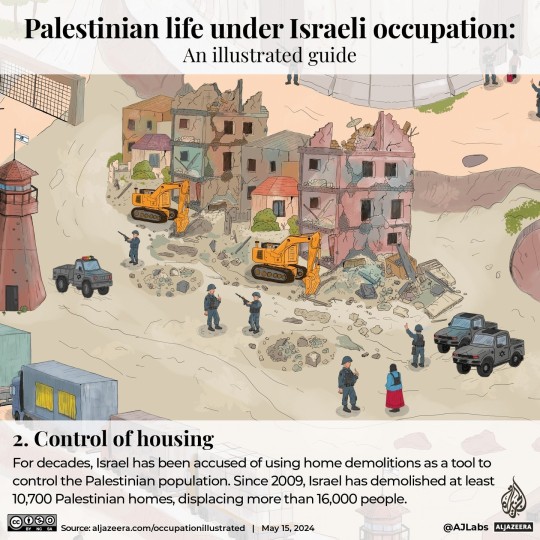
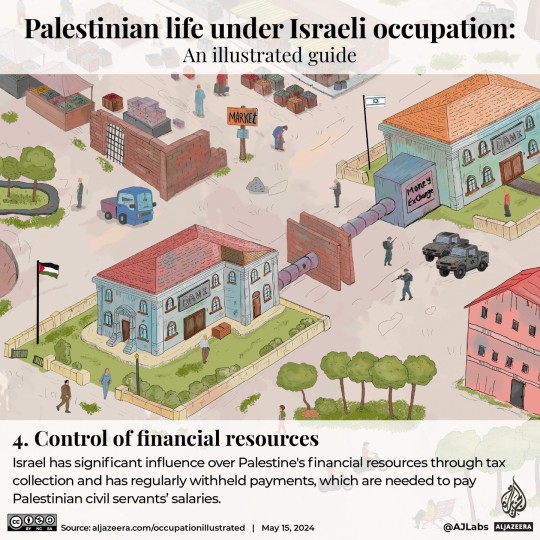
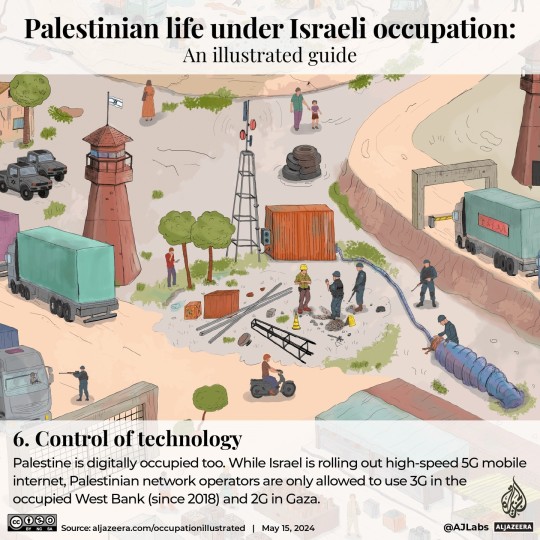
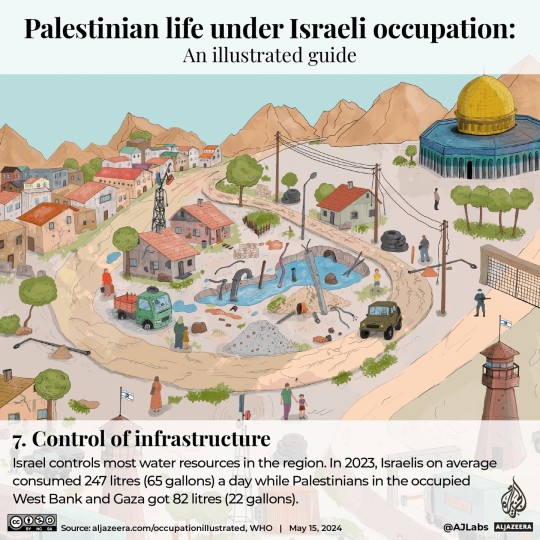
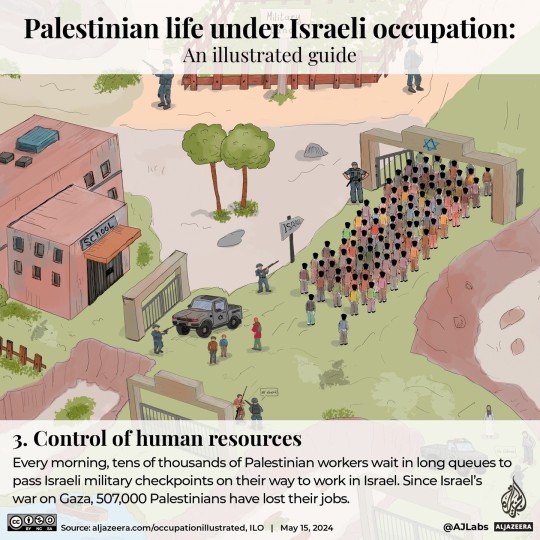
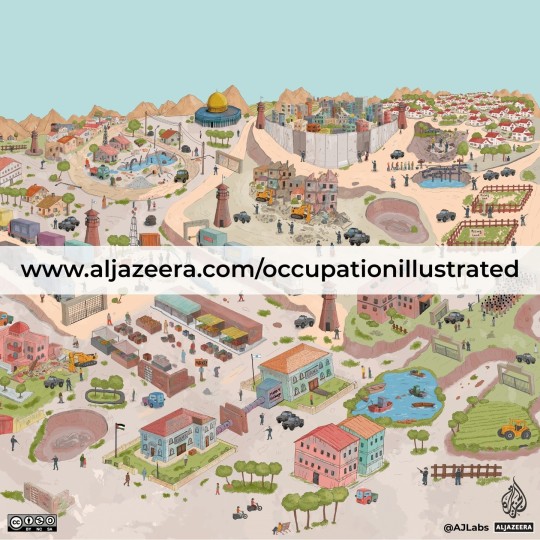
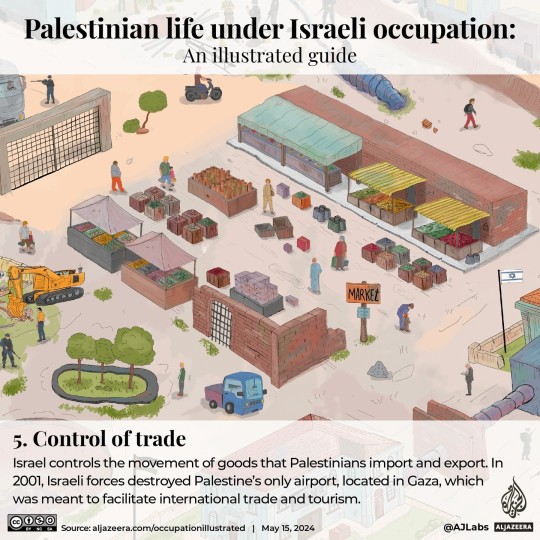
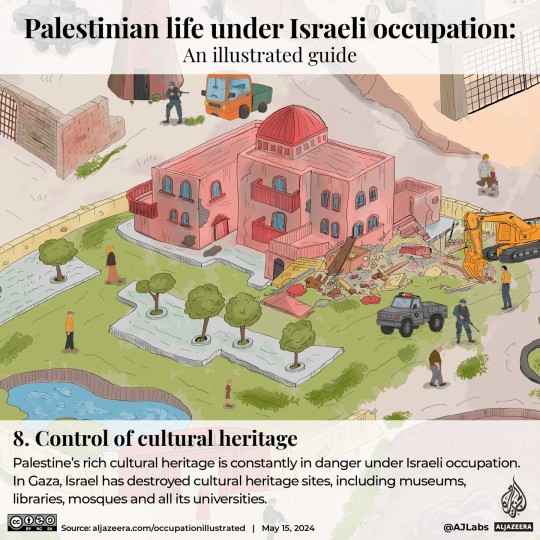
#al jazeera#apartheid#save palestine#israel is an apartheid state#ethnic cleansing#free palestine 🇵🇸#genocide#illegal occupation#stolen land#stolen homes#stolen resources#life under occupation#this was never about hamas#stolen culture#history erased#let Palestine live#israel are the real terrorists#generations of oppression#palestinian art#palestinian culture#iof terrorism#israel lies while palestine dies#israel are the occupiers not the victims#propaganda kills#repost#please share#israeli apartheid#israel is an illegal occupier#israel is a terrorist state#israel is committing genocide
34 notes
·
View notes
Text
Poetry Appreciation: "In Detention" - Chris van Wyk
TW: Violence, references to suicide, imprisonment, interrogation.

I've revisited this poem, so many times, and each time I feel filled with a visceral and powerful rage. Why, then, do I keep coming back to something that evokes these kinds of emotions within me?
It is a reminder, one that many people are all too willing to forget.
The poem is a bitter satire that mocks and mourns the recorded 'reasons for death' that security police stationed at prisons during the apartheid era in South Africa would use to explain the sudden death of prisoners under their watch. The increasingly bizarre and barely comprehensible deaths described in the poem reflect their scant regard for human life, and the power that these people were given over others.
Many of the political prisoners were murdered, died during torture or took their own lives to escape the hell on earth that was an apartheid era prison.
Dwelling on the past in an unhealthy manner? No. Not at all. These were formative experiences that shaped the lives and fortunes of many South Africans in modern times. The apartheid era is not ancient history. It exists within the living memory of those of my generation, and that of our parents and grandparents.
Let it never be forgotten. This I strongly maintain.
10 notes
·
View notes
Text
Words about Gaza and Palestine
I'm not Palestinian. I have no family there. Yet, I mourn those who died, and I cry with those who lost their loved ones. I've been living those past days on autopilot mode. I'm stuck on my phone, looking to be updated on the situation. I am and will not be impacted by this. But my body, my heart is acting as if – because I realize how awful the situation is. It's called being human. It's called having compassion.
We live in a society that forces us to be selfish. To lack compassion, to be completely desensitized to atrocities happening around the world. To go on with our lives. We're a few realizing that the death toll isn't just a bunch of numbers, but a list of people, who had dreams and hopes, friends and a family.
We're a few realizing the importance of life, and how absolutely devilish politicians are. Every single government in this world has and will only care about power and money. It seems obvious, an equivalent to saying the sky's blue, but nobody really grasps how awful governments, worldwide, are...
The West is funding genocide. Joe Biden is supporting "Israel" in their genocide. The U.S. is sending troops and billions in aid to the Israeli regime – they're literally helping "Israel" to exterminate Gazans and colonize Gaza. At least 2000 Palestinian children have been killed and in total, at least 4000 Palestinians have been murdered by the illegitimate State of "Israel".
We live in a world where it isn't outraging and worth burning everything down to see babies being traumatized by war. Newborns coming into this world and whose first sound is either explosions, pain, fear and/or grief. Parents being forced to bury their kids. Children bidding a farewell to their siblings. Entire families being wiped out of the civil registry. Thousands of people have been murdered, and thousands of others are on death row, held hostages by the genocidal regime of "Israel". Because "Israel" decided to cut off access to electricity, water and fuel, hospitals in Gaza are even more struggling to help the injured. The world cries about 40 fake babies, but has nothing to say about 130 real newborns who will be sentenced to death by "Israel" if the blockade doesn't end immediately.
“130 babies at mortal risk in Gaza's hospitals as Israel continues to bar entry of fuel : Israel's 'insistence' to block fuel deliveries needed for hospital generators may cost lives of 130 premature babies, says Gaza Health Ministry” (Anadolu Ajansı)
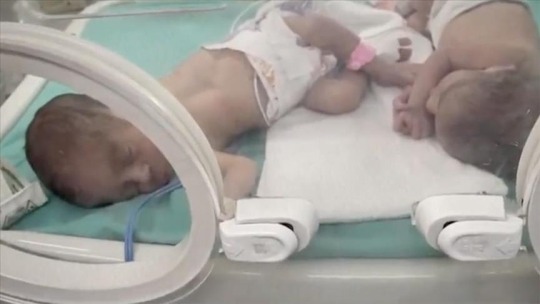
Worse, they're funding it! They're aiding Israel to murder all these people.
It sends shivers to my spine, it makes my heart sink and it boils my blood when I see those videos of bombs further destroying Gaza ; every single time they touch the ground and detonate, they tear the lives out of many people at once, who thought they'd be safe. I wished those deaths were false, that "Pallywood", as so many disgusting, vile “Israeli” assholes think is real, truly existed. That all these people, all these children, were still among us…
Damn it. I don't know what to think or say. I just want to burn everything down. From what I've seen, many people (thankfully) feel the same.
We need to organize ourselves. We need to accept the (ugly) truth : the government doesn't give a damn about any of us. For the State, money is more important than anything, it's worth killing for. We need to accept it and start organizing ourselves and truly fight for justice. Making them know we don't agree doesn't change anything, voting doesn't change anything – we need to stop playing by their rules because it's useless : we're only fighting for a better illusion of a just society.
We can't live with illusions anymore. Be bad, be angry. Organize and fight for the insurrection. 🔥🏴
If Palestinian children can't dream, then we'll prohibit world leaders from sleeping.
RIOT, STRIKE AND BOYCOTT NOW!
Palestine will be Free, from the River to the Sea! We'll fight until the fall of the apartheid regime. 🍉
Here's what you can do to help the Palestinian cause :
Boycott! Preferably, boycotting all companies that funds the Israeli apartheid is good, but you must absolutely boycott...
Puma
AXA
HP
Siemens
Carrefour
SodaStream
Ahava
Isr*eli produce
Donate to the Palestinian Children's Relief Fund (PCRF) if you can. Uplift Palestinian voices and share everywhere, on every single platform you have, what's going on in Palestine, from Gaza to the West Bank. Settlers are committing an ethnic cleansing in the West Bank, and the IOF has shot dead numerous Palestinians in the West Bank. "Israel" has bombed a mosque in the West Bank too.
This isn't a "war", even less a war against terrorism. It's a genocide. We must fight.
#anarchism#anarchist#my text#government#palestine#gaza#gaza strip#gazaunderattack#save palestine#save gaza#palestinian genocide#israel apartheid#palestinians#west bank#occupation#hamas
55 notes
·
View notes
Text
39 notes
·
View notes
Text

* * * *
LETTERS FROM AN AMERICAN
September 24, 2024
Heather Cox Richardson
Sep 25, 2024
This morning, President Joe Biden spoke to the United Nations General Assembly in New York City. Earlier in the day, Secretary General António Guterres of Portugal warned that “our world is in a whirlwind” and, having lost the “hot lines, red lines and guard rails” of the Cold War, is dangerous and adrift. In contrast, Biden in his final speech before the body offered optimism.
The president noted that when he first was elected U.S. senator in 1972, the world was also in a time of “tension and uncertainty.” The Cold War simmered, the Middle East was headed toward war, and the U.S. was in one in Vietnam. The United States was “divided and angry, and there were questions about our staying power and our future.” The U.S. and the world made it through that moment, he recalled, but it “wasn’t easy or simple or without significant setbacks.” Nonetheless, the world went on to reduce the threat of nuclear weapons, end the Cold War, forge a historic peace between Israel and Egypt, and end the war in Vietnam.
Last year, Biden noted, the U.S. and Vietnam elevated their partnership to the highest level, “a testament to the resilience of the human spirit and the capacity for reconciliation…proof that even from the horrors of war there is a way forward,” he said.
Biden’s message continued to be one of optimism as he recalled the world history he has seen. In the 1980s, he said, the racist regime of apartheid in South Africa fell; in the 1990s, Serbian president Slobodan Milošević was prosecuted for war crimes after presiding over chaos and mass murder in southeastern Europe. At home, Biden recalled, although there is more to do, he “wrote and passed the Violence Against Women Act to end the scourge of violence against women and girls not only in America but across the world.” Then, after the attacks of September 11, 2001, the U.S. brought the attack’s mastermind, Osama bin Laden, to justice.
Turning to his own presidency, Biden noted that it, too, began in “crisis and uncertainty.” Afghanistan had replaced Vietnam as America’s longest war, and after four American presidents had had to decide whether to withdraw, Biden “was determined not to leave it to the fifth.” Biden said he thinks every day of the 13 Americans who lost their lives along with hundreds of Afghans in a suicide bombing, the 2,461 U.S. military deaths and 20,744 American personnel wounded over the 20 years of that war, and the service personnel of other countries who died there.
Biden said that he came to office determined to rebuild the alliances and partnerships of the U.S. He worked to rebuild the North Atlantic Treaty Organization (NATO), and NATO allies and partners in more than 50 nations supported Ukraine’s resistance to Russia’s February 2022 invasion. Now NATO is “bigger, stronger, and more united than ever with two new members, Finland and Sweden,” he noted. Biden also worked to strengthen new partnerships like the Quadrilateral Security Dialogue, known as the Quad, which brings together the U.S., Japan, Australia, and India, and whose leaders met last weekend in Delaware to affirm their commitment to the partnership.
Biden listed the many crises around the world today. “[F]rom Ukraine to Gaza to Sudan and beyond,” he said, we see “war, hunger, terrorism, brutality, record displacement of people, a climate crisis, democracy at risk, strains within our societies, the promise of artificial intelligence and its significant risks.”
In 1919, Biden recalled, Irish poet William Butler Yeats described a world where “Things fall apart; the centre cannot hold; Mere anarchy is loosed upon the world.” But, Biden said, “[i]n our time, the center has held.” Leaders and people around the world have stood together to turn the page on Covid, defend the charter of the United Nations, and ensure the survival of Ukraine in the face of the 2022 Russian invasion.
“There will always be forces that pull our countries apart and the world apart: aggression, extremism, chaos, and cynicism, a desire to retreat from the world and go it alone,” Biden said. “Our task, our test, is to make sure that the forces holding us together are stronger than those that are pulling us apart, that the principles of partnership that we came here each year to uphold can withstand the challenges, that the center holds once again.”
Biden reiterated the themes of his administration’s foreign policy, urging the countries in the United Nations to continue to stand with Ukraine and to manage competition with China responsibly so that competition does not become conflict. He noted that the U.S. and China are working together to combat the flow of deadly synthetic narcotics around the world, but said the U.S. will continue to push back against unfair economic competition and the military coercion of other nations in the South China Sea, while strengthening a network of alliances and partnerships across the Indo-Pacific.
Turning to the Middle East, Biden reiterated the horrors of October 7, 2023, when Hamas terrorists invaded Israel and killed more than 1,200 people—including 46 Americans—and pointed out that “[i]nnocent civilians in Gaza are also going through hell. Thousands and thousands killed, including aid workers. Too many families dislocated, crowding into tents, facing a dire humanitarian situation. They didn’t ask for this war that Hamas started.”
Biden noted that the U.S., Qatar, and Egypt have put forward a ceasefire and hostage deal that was endorsed by the U.N. Security Council, and urged Israel and Hamas to finalize it. “Even as the situation has escalated,” Biden said, “a diplomatic solution is still possible.” Indeed, he said, “a two-state solution…where Israel enjoys security and peace and full recognition and normalized relations with all its neighbors, where Palestinians live in security, dignity, and self-determination in a state of their own,” remains “the only path to lasting security.”
Progress toward peace in the Middle East will put countries “in a stronger position to deal with the ongoing threat posed by Iran,” Biden said, to deny oxygen to the terrorists Iran supports and to “ensure that Iran will never, ever obtain a nuclear weapon.”
“Gaza is not the only conflict that deserves our outrage,” Biden said. In Sudan, a bloody civil war has put eight million people on the brink of famine, and caused death and atrocities. The U.S. has led the world in providing humanitarian aid, Biden said, and is leading diplomatic talks to avert a wider famine.
The U.S. stands behind the idea that people “need the chance to live in dignity,... protected from the ravages of climate change, hunger, and disease,” Biden said, and he noted that during his presidency the U.S. has invested more than $150 billion in sustainable development—including $20 billion for food security and more than $50 billion for global health—and has mobilized billions in private-sector investment. These principles were laid down in the 1950s by Republican president Dwight D. Eisenhower, who feared that impoverished populations would be easy prey for religious or political demagogues who could use them to start wars. Biden did not acknowledge that a Trump presidency, devoted to isolationism, would almost certainly abandon them.
Biden did note that the U.S. worked to repair the damage of Trump’s administration by rejoining the Paris Agreement on climate change. It also passed the most ambitious climate legislation in history, is on track to cut emission in half by 2030, and has promised to quadruple climate financing to developing nations, investing $11 billion so far this year. The U.S. also rejoined the World Health Organization and donated almost 700 million doses of Covid vaccine to 117 countries. Biden vowed to address the outbreak of mpox in Africa and urged other countries to join the effort. He noted that the U.S., the Group of Seven industrialized democracies (G7), and partners have launched an initiative to finance infrastructure in the developing world.
Biden took office warning that the international institutions set up after World War II had concentrated wealth and power among the hands of a few and thus people left behind around the globe were losing faith in democracy. That sentiment is shared at the U.N, and today he sided with those countries calling for an expanded U.N. Security Council, greater youth engagement, and stronger measures against climate change.
At length, Biden urged the U.N to take advantage of the possibilities and manage the risks of artificial intelligence (AI), which can both usher in scientific progress and push disinformation and create bioweapons. “We must make certain that the awesome capabilities of AI will be used to uplift and empower everyday people, not to give dictators more powerful shackles on…the human spirit,” he said.
So far, Biden’s speech was a retrospective of the changes he had seen in the world in more than 50 years in public service, and how he had tried to approach present-day changes by reinforcing and expanding America’s engagement with the world. But in his last address to the United Nations, he also had something personal to say.
“Even as we navigate so much change,” he said, “[w]e must never forget who we’re here to represent.”
“‘We the People,’” he said, the first words of the U.S. Constitution, and the words that inspired the opening words of the U.N. Charter, which begins: “We the peoples of the United Nations determined to save succeeding generations from the scourge of war….”
Biden noted that he “made the preservation of democracy the central cause of my presidency.” He recalled the difficulty of deciding to step away, concluding that “as much as I love the job, I love my country more.”
“My fellow leaders, let us never forget, some things are more important than staying in power. It’s your people…that matter the most. Never forget, we are here to serve the people, not the other way around. Because the future will be…won by those who unleash the full potential of their people to breathe free, to think freely, to innovate, to educate, to live and love openly without fear. That’s the soul of democracy. It does not belong to any one country.”
It lives in “the brave men and women who ended apartheid, brought down the Berlin Wall, fight today for freedom and justice and dignity,” he said. It’s in Venezuela, where millions voted for change; in Uganda, where LGBTQ activists demand safety and recognition of their humanity; in citizens from Ghana to India to South Korea peacefully choosing their leaders.
“Every age faces its challenges,” Biden said. “I saw it as a young man. I see it today. But we are stronger than we think. We’re stronger together than alone. And what the people call ‘impossible’ is just an illusion. [As] Nelson Mandela taught us…: ‘It always seems impossible until it’s done.’”
LETTERS FROM AN AMERICAN
HEATHER COX RICHARDSON
#Joe Biden#The UN#Letters From An American#Heather Cox Richardson#National Security#American History#world economy#Election 2024
8 notes
·
View notes